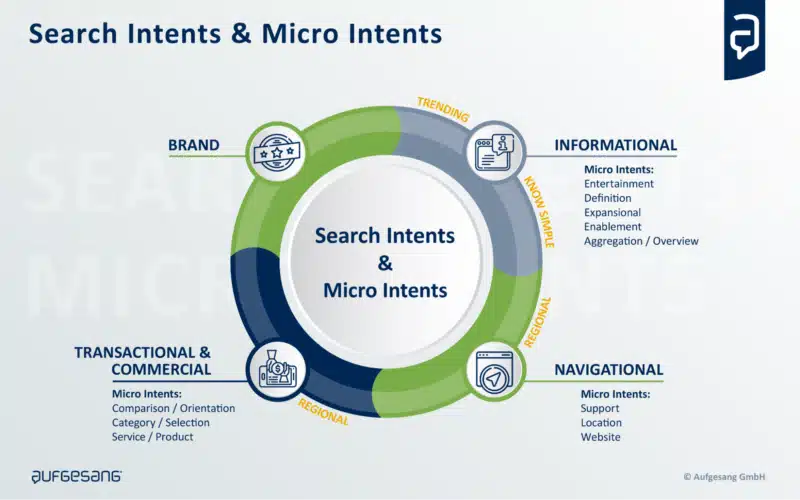Pulse of Information
Stay updated with the latest news and insights.
The Hidden Logic of Search Queries
Unlock the secrets behind search queries! Discover the hidden logic that drives online searches and boost your SEO game today!
Understanding the Patterns: How Search Queries Reveal User Intent
Understanding user intent behind search queries is crucial for effective SEO strategies. User intent can generally be categorized into three primary types: informational, navigational, and transactional.
- Informational queries aim to find answers to questions or gain knowledge about a topic. For example, users searching for 'how to bake bread' are looking for specific information.
- Navigational queries are used when individuals are trying to reach a particular website or page, such as searching for 'Facebook login' or 'YouTube'.
- Transactional queries indicate an intention to make a purchase or take action, exemplified by searches like 'buy running shoes online' or 'best deals on laptops'.
By analyzing these patterns, SEO professionals can tailor their content to meet the specific needs of their audience. For instance, creating detailed guides and tutorials can target users with informational intent, while optimizing landing pages can cater to transactional intent. Moreover, utilizing appropriate keywords and phrases in your content not only enhances visibility but also aligns closely with what users are actively searching for. This alignment ultimately drives higher engagement and conversion rates, underscoring the importance of understanding search queries as a reflection of user intent.

The Psychology Behind Search: Decoding the Hidden Logic of Queries
The psychology behind search queries is a fascinating exploration of human behavior and intent. When individuals input a search term, they are typically seeking information that addresses a specific need or curiosity. This process involves a complex interplay between cognitive biases, emotional triggers, and previous experiences that shape their expectations. Understanding the hidden logic of queries allows content creators to tailor their strategies effectively, ensuring that they meet user intent and provide relevant answers. For example, a user searching for 'best running shoes' may not just be looking for products; they are often motivated by a desire to improve their health, find comfort, or prepare for an upcoming race. Recognizing these underlying motivations can significantly enhance the relevancy of content delivered to searchers.
Moreover, the way queries are structured—whether in the form of questions, statements, or keywords—also reflects users' cognitive processes. Decoding the hidden logic of queries involves analyzing patterns in user behavior, such as the use of long-tail keywords that indicate more specific desires. This specificity often reveals deeper insights into what individuals are truly searching for, which can drive content optimization strategies. For instance, a query like 'how to choose the right running shoes for flat feet' reflects not only a question but also signals a broader concern about health and well-being. By leveraging insights from search psychology, marketers can enhance their SEO efforts, ultimately leading to more effective communication and stronger engagement with their audience.
What Do Your Search Queries Really Mean? Uncovering the Secrets of Online Behavior
Understanding what your search queries really mean is crucial for interpreting online behavior and enhancing your digital presence. Search queries serve as a direct reflection of user intent, revealing what individuals are actively seeking at any given moment. By analyzing these queries, businesses can tailor their content to align with the specific needs of their audience. Moreover, uncovering trends in search behavior can help you identify opportunities for engagement and improve overall SEO performance.
To truly decipher the meaning behind search queries, consider employing techniques such as keyword analysis and user persona development. For example, organizing queries into different categories, such as informational, navigational, and transactional, can provide insights into user motivations. Additionally, leveraging tools like Google Search Console can yield invaluable data about how users are finding your content. As a result, you can create more targeted strategies to increase visibility and engagement, ultimately leading to greater online success.